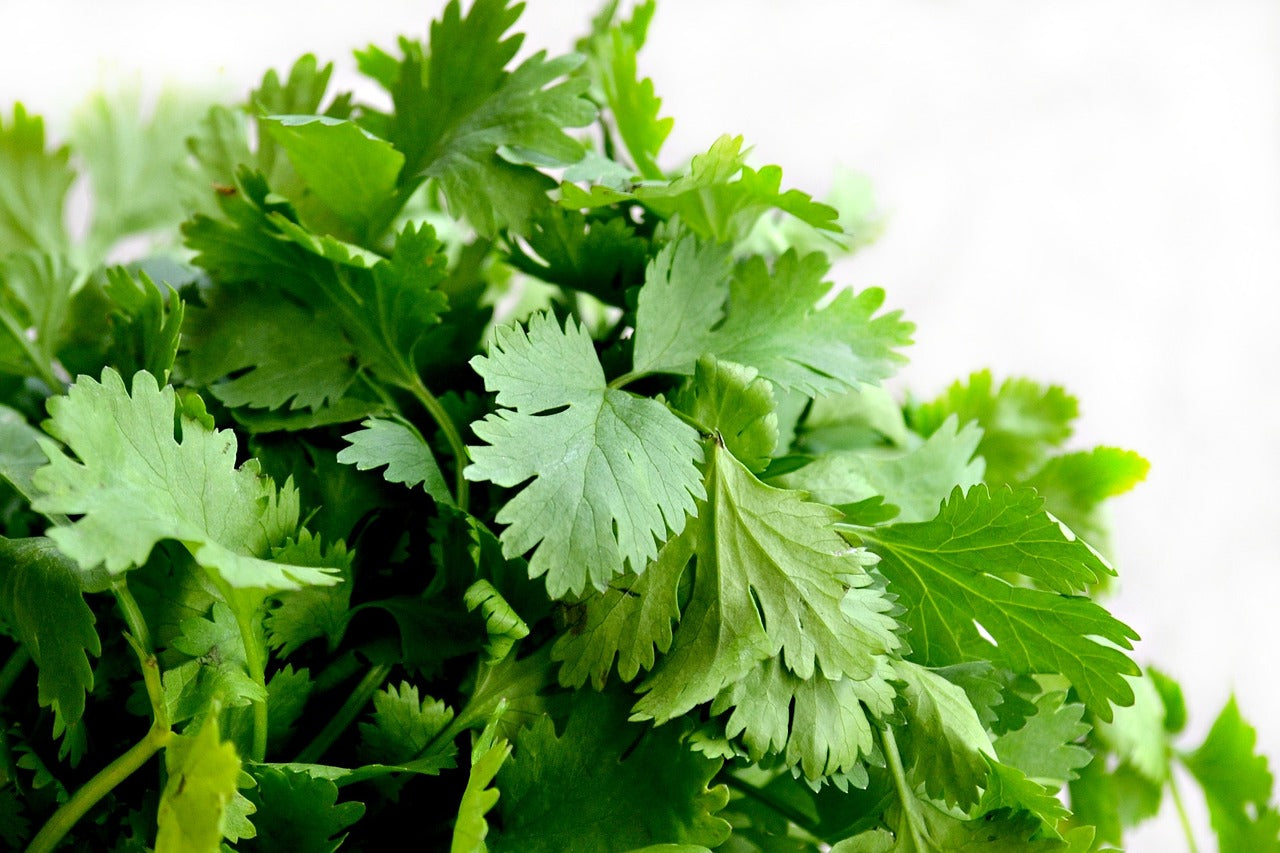Cilantro, scientifically known as Coriandrum sativum, is a widely-used herb in several culinary cultures across the globe. In the United States, the term 'cilantro' refers to the leaves and stems of the plant, while the seeds are known as 'coriander'. In other parts of the world, the entire plant is referred to as 'coriander'. This fragrant herb, often used as a garnish, packs a nutritional punch and provides an array of health benefits.
Unveiling the Nutritional Profile of Cilantro
Cilantro is a low-calorie herb, rich in several vitamins and minerals that contribute to its health benefits. A small serving of cilantro can provide a significant portion of your daily recommended intake of several essential nutrients.
Nutrients in a Quarter Cup of Cilantro:
Calories: <1
- Fat: 1 gram (g)
- Sodium: 2 milligrams (mg)
- Carbohydrates: <1 gram
- Fiber: <1 gram
- Protein: <1 gram
- Vitamin A: 5% of the daily value
- Vitamin C: 2% of the daily value
- Vitamin K: 16% of the daily value
Cilantro contains essential vitamins such as A, C, and K, and minerals like potassium, calcium, and manganese. It also boasts an impressive antioxidant profile, which contributes to many of its health benefits.
Exploring the Health Benefits of Cilantro
1. Supports Brain Health
Cilantro may have neuroprotective effects, according to several studies. The herb has been linked to a reduction in symptoms of cognitive diseases like Alzheimer's and Parkinson's disease. The addition of fresh cilantro leaves to the diet of laboratory mice resulted in improvements in their memory, indicating potential benefits for brain health.
2. Reduces Anxiety
Cilantro might have potential as a natural remedy for anxiety. Extracts from the cilantro plant have shown effectiveness in reducing anxiety symptoms in animal studies, nearly matching the effects of conventional anxiety medications.
3. Balances Blood Sugar Levels
Cilantro has a well-established reputation for its ability to lower blood sugar levels. This makes it a valuable herb for people with diabetes or those at risk. In animal studies, coriander seeds reduced blood sugar by stimulating an enzyme that removes sugar from the blood.
4. Prevents Foodborne Illnesses
Cilantro contains a compound called dodecenal, which has antimicrobial properties. This compound may protect the body against infections and illnesses caused by tainted food. In particular, dodecenal is effective against Salmonella, a bacteria that can cause serious food poisoning.
5. Enhances Nutrient Absorption
Cilantro enhances the body's ability to absorb nutrients, making it a valuable addition to any diet. Its high fiber content aids digestion and helps the body absorb nutrients more efficiently. Plus, cilantro's rich antioxidant content helps protect the body from damage by free radicals.
6. Boosts Immune System
With its rich content of essential vitamins, cilantro supports the immune system, providing the body with the necessary tools to fight off disease. Vitamins A and C are crucial for immune function, and cilantro provides a significant portion of the daily recommended intake of these vitamins.
7. Promotes Heart Health
Cilantro may help maintain healthy cholesterol levels, which is essential for heart health. The herb's high potassium content also aids in regulating blood pressure, reducing the risk of heart disease.
8. Supports Skin Health
Cilantro's antioxidant properties can benefit your skin. The herb's antioxidants can stop or slow down certain types of cell damage, leading to healthier and younger-looking skin.
9. Improves Sleep Quality
Cilantro may help improve sleep quality due to its natural sedative effect. If you've been having trouble sleeping, adding cilantro to your diet could potentially lead to a more restful night's sleep.
10. Aids in Weight Management
Cilantro can support your weight management goals. Being low in calories and high in nutrients, it can add flavor to your meals without adding extra calories, making it an excellent choice for those trying to lose weight or maintain a healthy weight.
11. Supports Bone Health
Cilantro is a good source of vitamin K, which is essential for bone health. Vitamin K aids in the absorption of calcium, a key component of our bones. Regular consumption of cilantro could lead to stronger and healthier bones.
12. Detoxifies the Body
Cilantro supports the body's natural detoxification processes. It has a unique ability to bind with heavy metals in the body, aiding in their removal. This can help keep your system clean and functioning optimally.
Incorporating Cilantro into Your Diet
Cilantro is a versatile herb that can be added to a variety of dishes. Whether you're cooking Mexican, Thai, or Indian cuisine, cilantro can add a fresh, zesty twist to your meals. It can be used in salads, soups, sauces, and even drinks. Here are a few ways to use cilantro in your favorite recipes:
- Sprinkle chopped cilantro on Mexican dishes for a fresh flavor.
- Make a spring roll by wrapping whole sprigs of cilantro with cooked pork, cucumber, carrot, and vermicelli noodles.
- Mix cilantro and lime to create a delicious seasoning for grilled fish.
- Add chopped cilantro to cooked rice along with butter and lime zest.
- Puree cilantro with roasted carrots, onion, and garlic to make a hearty soup.
Conclusion
Cilantro is not just a garnish – it is a nutritional powerhouse that provides a myriad of health benefits. From supporting brain health to aiding digestion, boosting the immune system, promoting heart health, and even detoxifying the body, cilantro is an herb that deserves a regular spot in your diet. So, the next time you're garnishing your dish with cilantro, remember, you're not just adding flavor, but also a host of health benefits.

